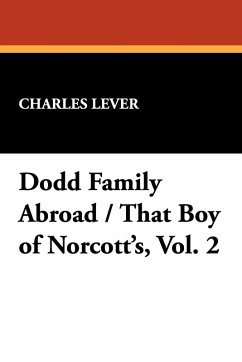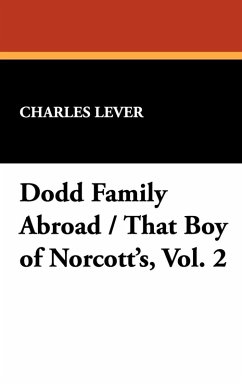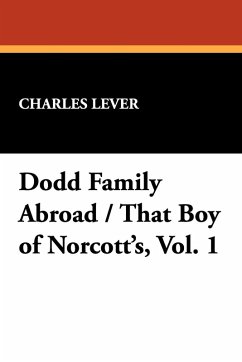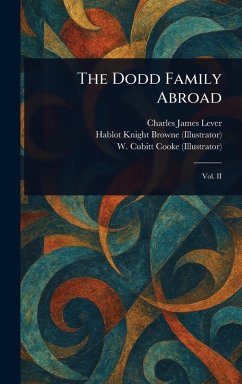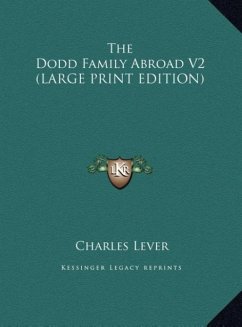
Charles Lever
Gebundenes Buch
The Dodd Family Abroad V2 (LARGE PRINT EDITION)
Versandkostenfrei!
Versandfertig in 1-2 Wochen

PAYBACK Punkte
22 °P sammeln!




(LARGE PRINT EDITION) This book is a facsimile reprint and may contain imperfections such as marks, notations, marginalia and flawed pages.
Lever and Boyle earned pocket money by singing their own ballads in Dublin's streets and engaging in a variety of other pranks, which Lever dramatized in his novels O'Malley, Con Cregan, and Lord Kilgobbin. In 1833, he married his first love, Catherine Baker, and in February 1837, after a number of experiences, he began publishing The Confessions of Harry Lorrequer in the newly created Dublin University Magazine. In 1833, he married his first love, Catherine Baker, and in February 1837, after a number of experiences, he began publishing The Confessions of Harry Lorrequer in the newly created Dublin University Magazine. During the previous seven years, popular taste had turned toward the "service novel," examples of which include Frank Mildmay (1829) by Frederick Marryat, Tom Cringle's Log (1829) by Michael Scott, The Subaltern (1825) by George Robert Gleig, Cyril Thornton (1827) by Thomas Hamilton, Stories of Waterloo (1833) by William Hamilton Maxwell, Ben Brace (1840) by Frederick Chamier, and The Bivouac (1837), also by Maxwell. Lever had met the genre's nominal founder, William Hamilton Maxwell.
Produktdetails
- Verlag: Kessinger Publishing, LLC
- Seitenzahl: 304
- Erscheinungstermin: 1. Februar 2011
- Englisch
- Abmessung: 286mm x 221mm x 21mm
- Gewicht: 1029g
- ISBN-13: 9781169883727
- ISBN-10: 1169883729
- Artikelnr.: 37461501
Herstellerkennzeichnung
Libri GmbH
Europaallee 1
36244 Bad Hersfeld
gpsr@libri.de
Für dieses Produkt wurde noch keine Bewertung abgegeben. Wir würden uns sehr freuen, wenn du die erste Bewertung schreibst!
Eine Bewertung schreiben
Eine Bewertung schreiben
Andere Kunden interessierten sich für


